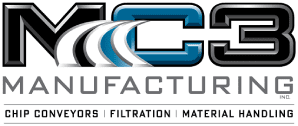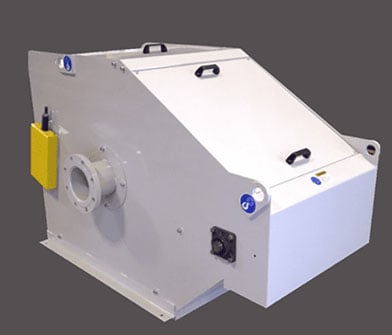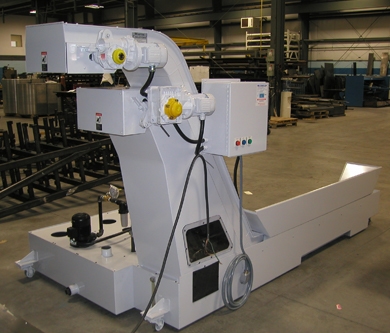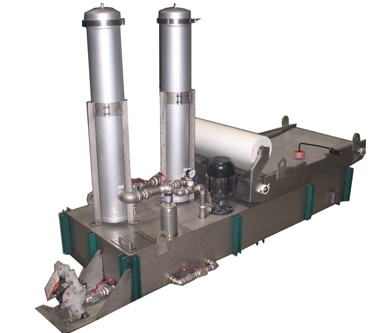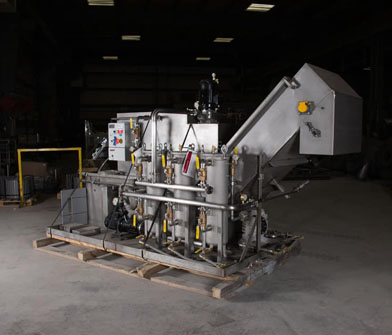Filtration Systems
Whether you’re cutting threads on a giant hydraulic arm, boring an engine block, turning a piston head, washing parts, or cutting metal with a water jet, you’re relying on coolant. It may be oil or water-based, but coolants are designed to protect both your tools and your product.
That’s not all your coolant does, though. It clears the waste from the work area. The chips, shavings, turnings, filings -everything the bits and blades cut away- have to go somewhere. Most systems rely on settling tanks in the bottom of the machine. The coolant runs into the tank and slows down, allowing the waste particles to settle to the bottom before the coolant is pumped back up to the cutting area.
But is it really working? Too much heat can drop the viscosity of oil coolants. Way too much heat can crank that viscosity way up. Either way, the oil isn’t going to carry the chips the way it should. Water-based coolants can be even worse, with failures of rust inhibitors, bacterial growth inhibitors, and viscosity. Scrap particles contained within the coolant contribute to heat retention, create abrasive coolant, and plug coolant lines and tools. These problems may be completely invisible if you only see the coolant when it’s pouring over the cutting tool. If the static filter develops a hole, abrasive particles can damage your pump as well as your tools and products.
Our filtration systems are designed to maximize the life of your machines. You get better control and easier monitoring of your coolant systems. No more dirty little tanks neglected in the bottom of your critical machines; our filtration systems give you radical new management.
Gravity bed filters use roll filter material, so there’s always fresh filter space. They can be programmed around machine cycles and require minimal monitoring. These are best for pulling light metal fines from oil or water-based coolants.
Drum filter conveyors are ideal for big operations. Those big bird’s nests and long, stringy tailings get sorted easily by the drum filter. It uses a backwash system to keep the drum clean, and dual conveyors to remove the large and small materials.
Our deep bed filters handle corrosive or alkaline fluids for grinding, parts washing, and composite applications. They also use roll filter material to ensure the particles get caught and never compromise the flow.
Vacuum filter conveyors use pressure to separate contaminants from the coolant. They’re ideal for situations where the product surface finish must be protected, like chromed hydraulic shafts or ground parts.
- Extending your coolant system means a greater coolant volume. That automatically lowers the risk of sudden system failure
- In high-temperature applications, chillers can be added
- Filtration can be designed to your specifications
- Extracted chips and other waste is conveyed to a bin or steel hopper for later disposal


